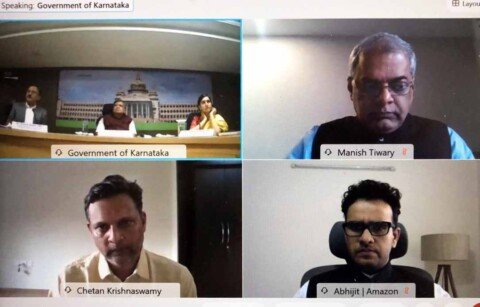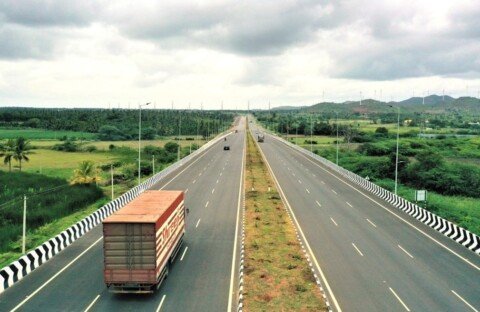The Government of India and the World Bank have signed an agreement to construct the Green National Highway Corridors Project (GNHCP), spanning 781 km across Himachal Pradesh, Rajasthan, Uttar Pradesh, and Andhra Pradesh. This ambitious project, with a total cost of $1,288.24 million (Rs. 7,662.47 crore), will receive $500 million in loan assistance from the World Bank. The final package of the GNHCP is scheduled for completion by May 2026.
The GNHCP aims to demonstrate safe and green highway development, emphasising climate resilience and green technologies. Key aspects of the project include:
1. Conservation of Natural Resources: Utilising cement-treated sub-base and reclaimed asphalt pavement.
2. Promoting Local and Marginal Materials: Incorporating lime, fly ash, and waste plastic in construction.
3. Bio-Engineering Measures for Slope Protection: Implementing techniques such as coco fibre and jute erosion control blankets with shrub and grass plantations, hydroseeding, Shotcrete crib walls with vegetation, bamboo plantations, hedge brush layers, interlink chain mesh with grass strips, and geocells with hydroseeding.
These green technologies and bio-engineering solutions, particularly in hilly areas, are expected to reduce carbon emissions and conserve natural resources throughout the project’s lifecycle, from construction to operation. The project aims to provide smooth, motorable roads with all-weather connectivity, fostering socio-economic development and enhancing trade and connectivity within the region. Improved connectivity to inner regions will boost employment opportunities and promote inclusive growth by integrating these areas more closely with mainstream economic activities.
This significant development was announced by the Union Minister for Road Transport and Highways, Shri Nitin Gadkari, in a written reply to the Lok Sabha today.







